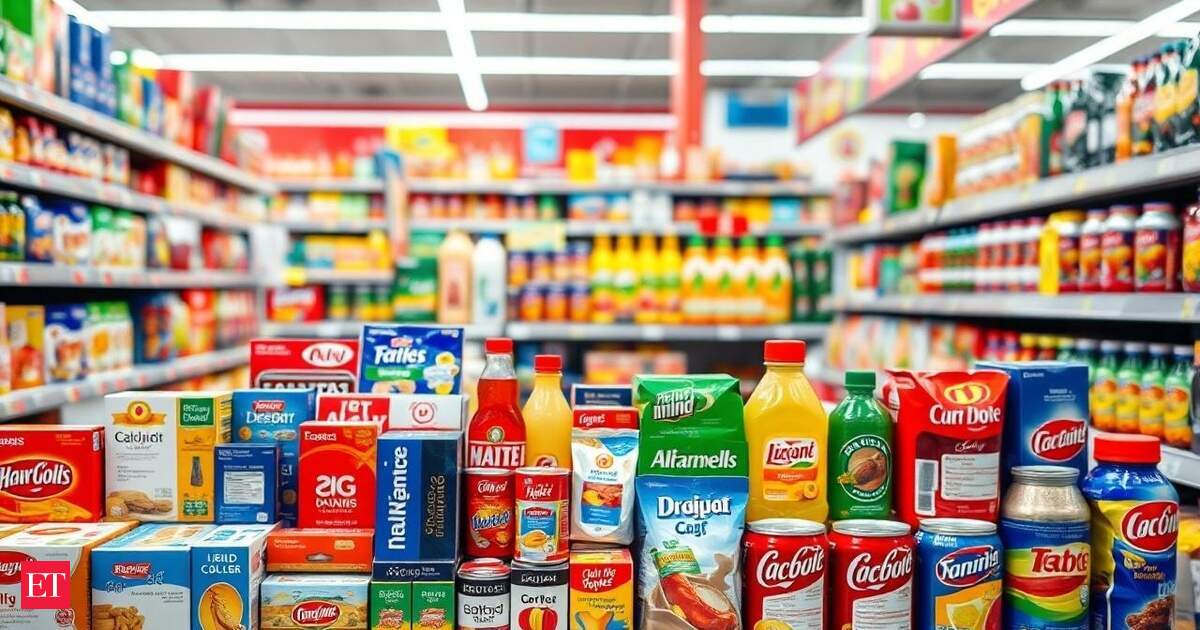Now Reading: FMCG Giants Embrace Sugar-Free Trend in Health Boom
-
01
FMCG Giants Embrace Sugar-Free Trend in Health Boom
FMCG Giants Embrace Sugar-Free Trend in Health Boom

Fast Summary
- Indian packaged food companies, including Britannia, Nestle, tata Consumer Products, adn Marico, are reducing sugar, sodium, and fat in their offerings due to increased health awareness.
- These companies are incorporating wholegrains, millets, vitamins, and micronutrients while complying with the Food Safety and Standards Authority of India’s ‘Eat Right Movement.’
- Examples include Britannia increasing wholegrain content by over 3.5 times between 2018-25 and cutting sugar by 3.4% as well as sodium by 11.9%; Nestle reducing sugar by 6% and salt by 10%; Tata cutting added sugar in ready-to-drink variants significantly; Marico fortifying oils with vitamins and improving key products for health benefits like oats under its Saffola brand.
- The beverage sector is also adapting: PepsiCo has increased low-sugar offerings; United Breweries is producing no-added-sugar beers; zero-alcohol beverages like whiskey alternatives from brands such as Sober Zero Proof Spirits are gaining ground among Gen Z consumers.
- This trend reflects a growing consumer demand for healthier dietary options without compromising on taste across all food categories.
Indian Opinion Analysis
The collective shift towards healthier food products marks an encouraging step toward combating lifestyle diseases in India. with large FMCG players actively reformulating their portfolios to reduce unhealthy components like refined sugars while adding beneficial nutrients such as vitamins and millets to cater to rising health-consciousness among consumers-especially Gen Z-the industry stands at an notable transition point aligned with evolving public preferences.However, challenges remain regarding scalability across broader demographics where affordability remains critical for mass adoption of nutritious options beyond urban centers.As spearheaded through initiatives such as the ‘Eat Right Movement,’ the focus must balance wellness goals with sensory satisfaction (taste) without alienating larger sections of Indian society still reliant on conventional products priced accessibly.
Read More: Economic Times


























